Keep calm and carry on!
The most annoying things in the world!
Duration: 50 minutes.
Let’s take a look at today’s lesson
In this lesson, we will practice our speaking skills.
We will discuss the topic of things that annoy us, and I will teach you some vocabulary used when talking about this subject. At the end, I will ask you some questions.
Lesson Key: (L) = Listening. (U) = Understanding. (R) = Reading.
How do you deal with being annoyed?
What are some things that can annoy you? At times, we may be inclined to dismiss our feelings of annoyance by downplaying them, saying, “Oh, I shouldn’t be so annoyed by such a trivial matter.”
Occasionally, gaining a little perspective can indeed help us keep annoyance and anger at a distance. However, it’s worth considering that our feelings of annoyance could be conveying something significant, such as one of the following:
1. You need to set a limit. Someone is asking you a question that feels much too personal, and you feel irritated. Before things go too far, say something like, “I really don’t want to talk about it”.
2. You need to protect your time.
Is someone asking you to help out at another event? Again?! Your annoyance may be telling you that you are already overloaded, try saying, “I’ve got a lot on my plate already. I’ll think about it and get back to you.”
3. You need to find a better way to do something. Annoyed at all the morning tasks you need to juggle just to get to work on time? What could you do to make your situation better? Could you wake up 15 minutes earlier, do some tasks the night before, or delegate.
4. You’re feeling resentful or angry. Maybe you think you’re doing more than your share of household chores. Instead of being angry about it, turn your complaint into a request, and see what happens. You could say, “I’d appreciate it if you could…”
Have you ever been annoyed in any of the following situations?
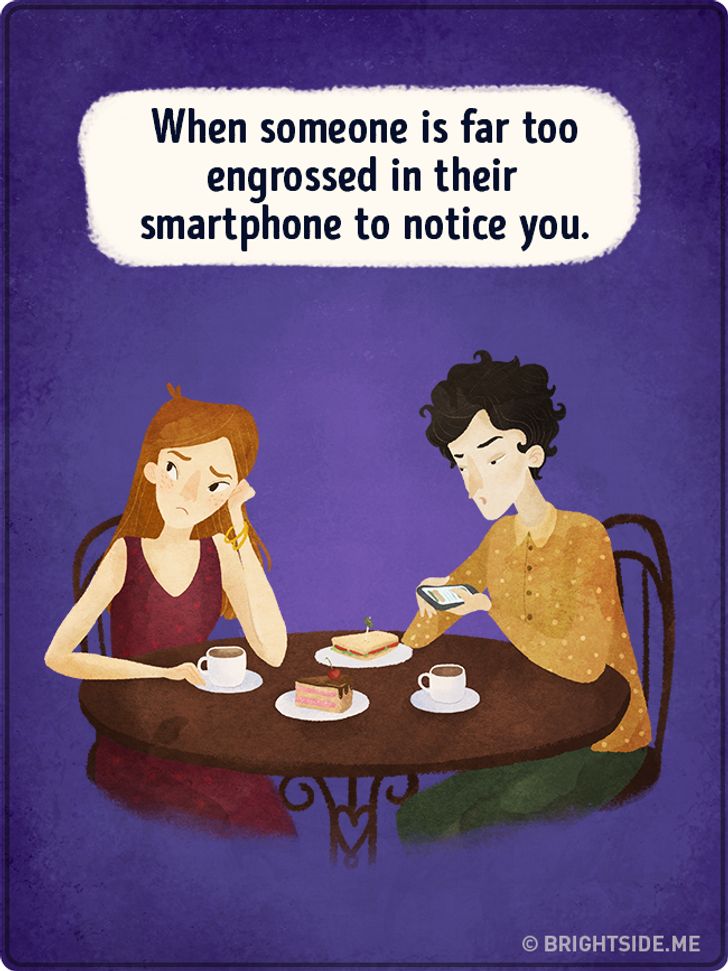

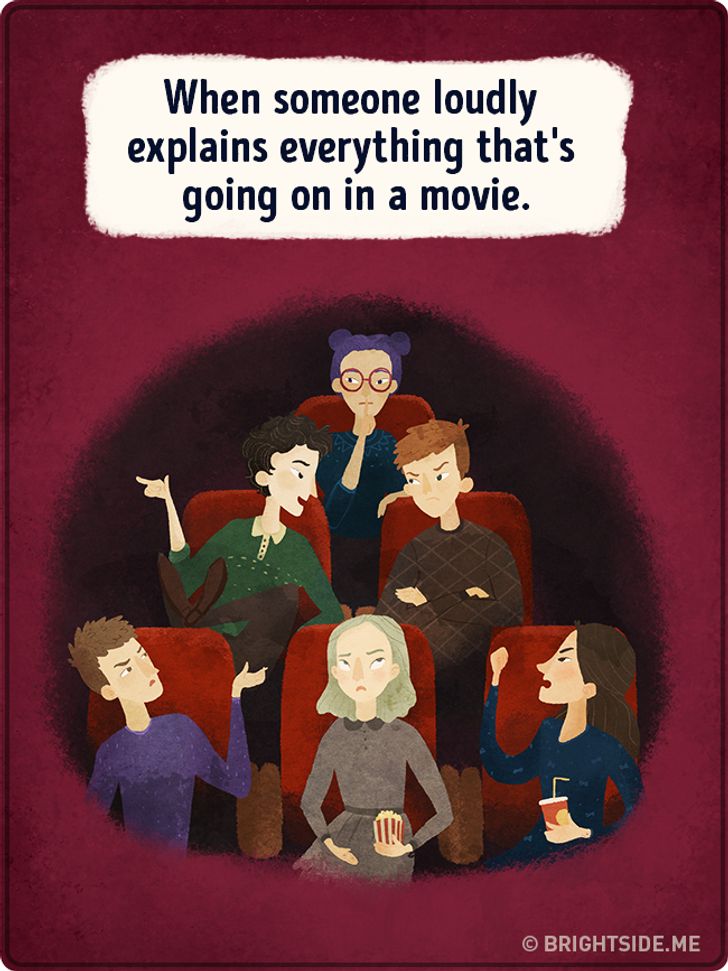
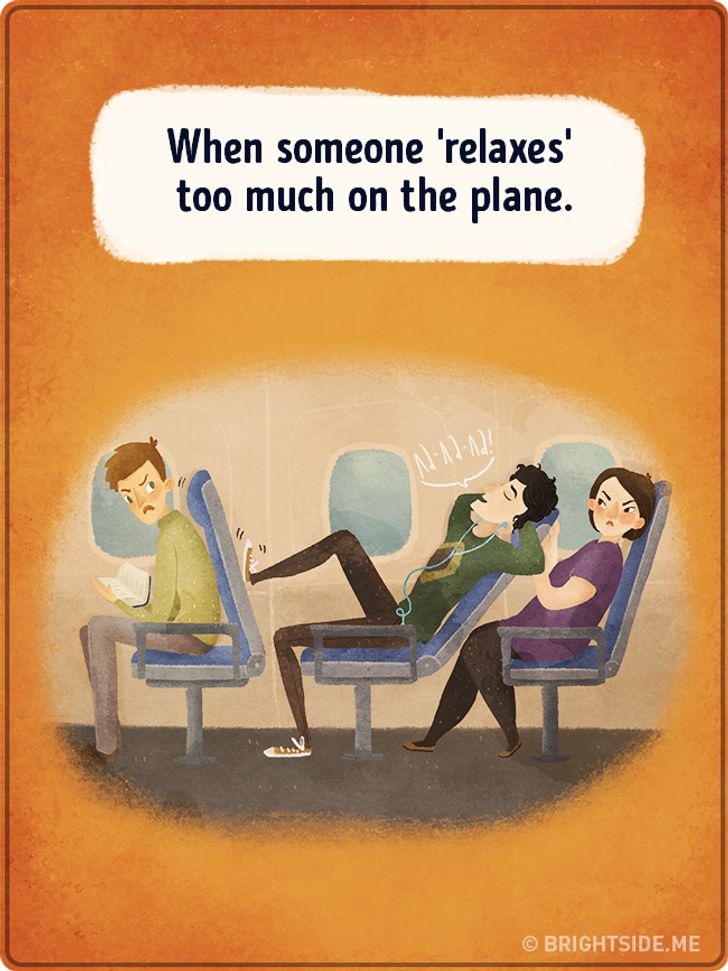
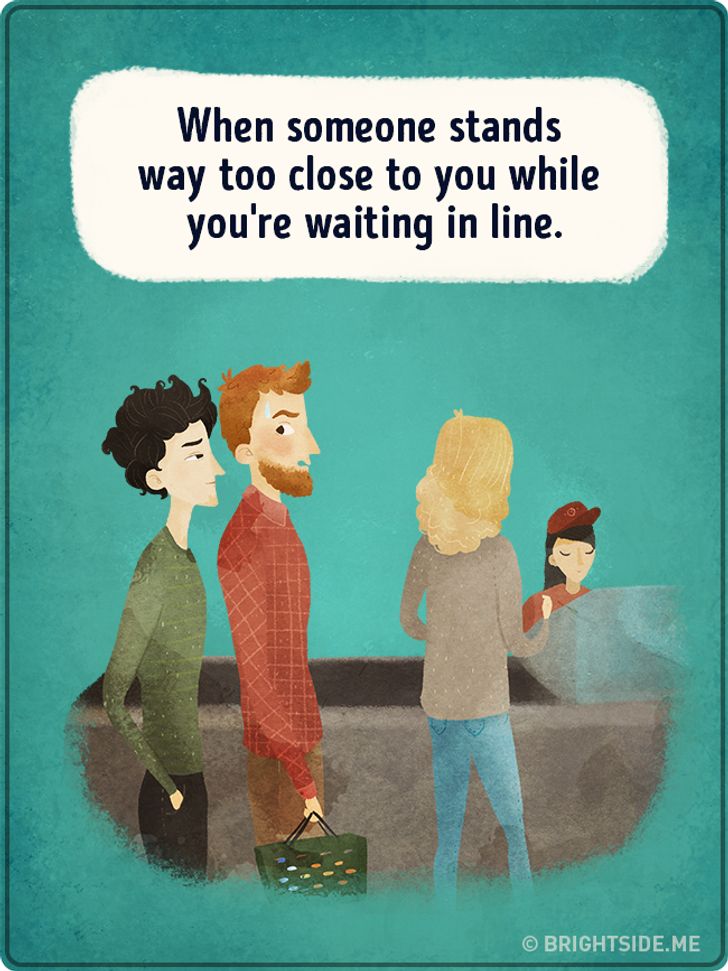
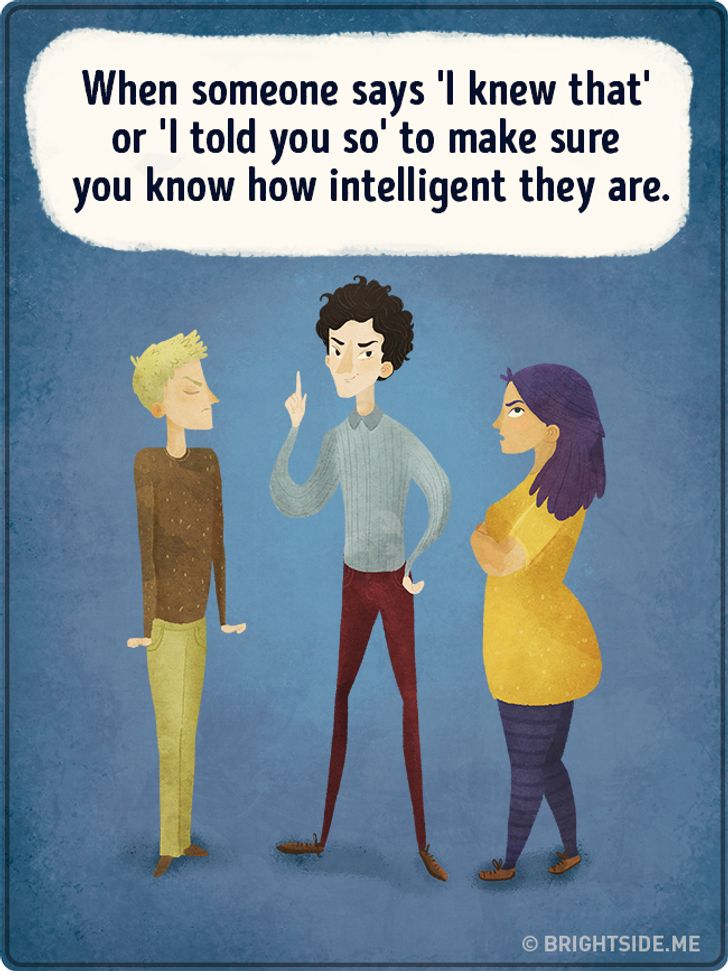
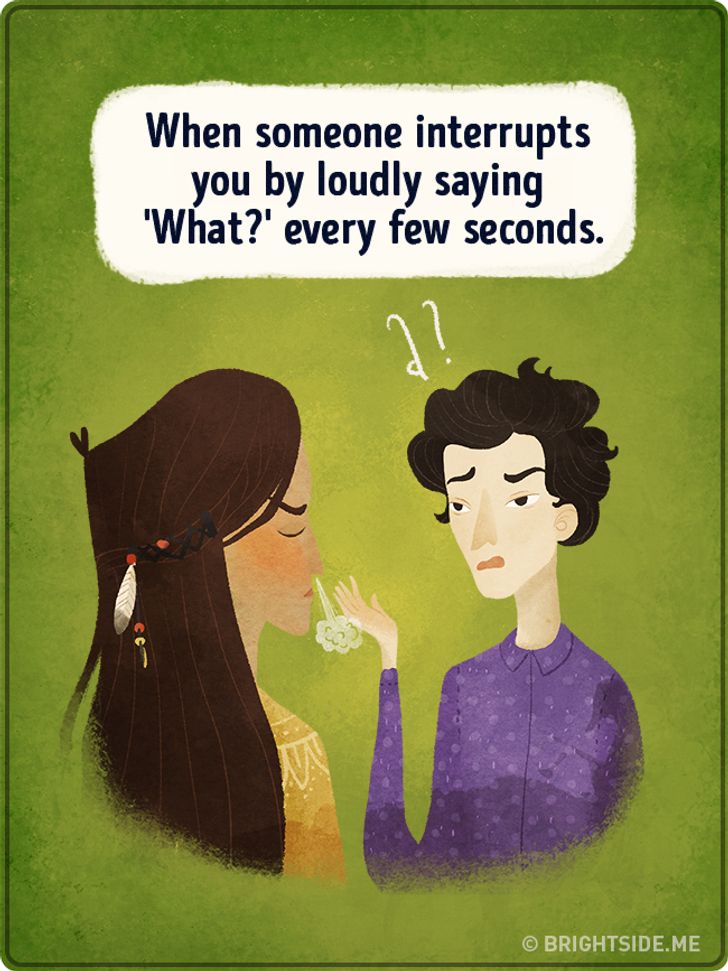

Vocabulary for expressing annoyance, along with sentence examples.
This section presents a range of vocabulary words used to express annoyance in English (UK), along with example sentences showcasing their usage.
| Words/Phrases | Definitions | Example Sentence |
|---|---|---|
| Irritated | Feeling slightly angry or annoyed. | “I was irritated when my colleague kept interrupting me during the meeting.” |
| Frustrated | Feeling annoyed or discouraged due to a difficulty or obstacle. | “I feel frustrated when I can’t find my keys after searching everywhere.” |
| Aggravated | Feeling extremely annoyed or irritated. | “The constant noise from the construction site aggravated me.” |
| Displeased | Feeling unhappy or dissatisfied. | “I was displeased with the poor customer service at the restaurant.” |
| Bothered | Feeling annoyed or troubled by something. | “The loud music from the party next door bothered me while I was trying to sleep.” |
| Peeved | Feeling annoyed or irritated, often mildly. | “I was peeved when my computer crashed right before I could save my work.” |
Let’s compare some language, I have composed two answers; one in simple and the other in advanced English for two of the questions below.
Do people who are impolite bother you? Why?
Basic English: Yes, people who are impolite bother me because I believe it is important to treat others with respect and kindness.
Advanced English: Absolutely, individuals who exhibit impoliteness and disrespect towards others tend to agitate me, as I hold a strong belief in the importance of treating everyone with decency and civility. I find such behaviour not only rude, but also potentially harmful to one’s social and professional relationships.
What annoys you most about learning English?
Basic English: What annoys me the most about learning English is the grammar rules and the many exceptions to these rules.
Advanced English: As someone who is constantly striving to improve their language proficiency, I find the intricacies of English grammar to be particularly annoying. The endless rules, irregularities, and nuances of the language can be incredibly frustrating, particularly for non-native speakers like myself who are working diligently to master it. Additionally, the lack of consistency in pronunciation and spelling can make learning English a daunting task.
If we have time, here are some discussion questions about today’s subject.
- Are you annoyed more by noisy things or by inconvenient things?
- Do people who are impolite bother you? Why?
- How do you feel when someone cuts in front of you in a line (a queue)?
- Are you annoyed when someone interrupts you while you are speaking?
- Are we so busy in today’s world that small things annoy us more than in the past?
- What can we do to deal with so many annoyances in today’s world?
- What is the most annoying thing you have to deal with at work?
- What annoys you most about learning English?
- Can you give me some tips, on how, to not get stressed?








